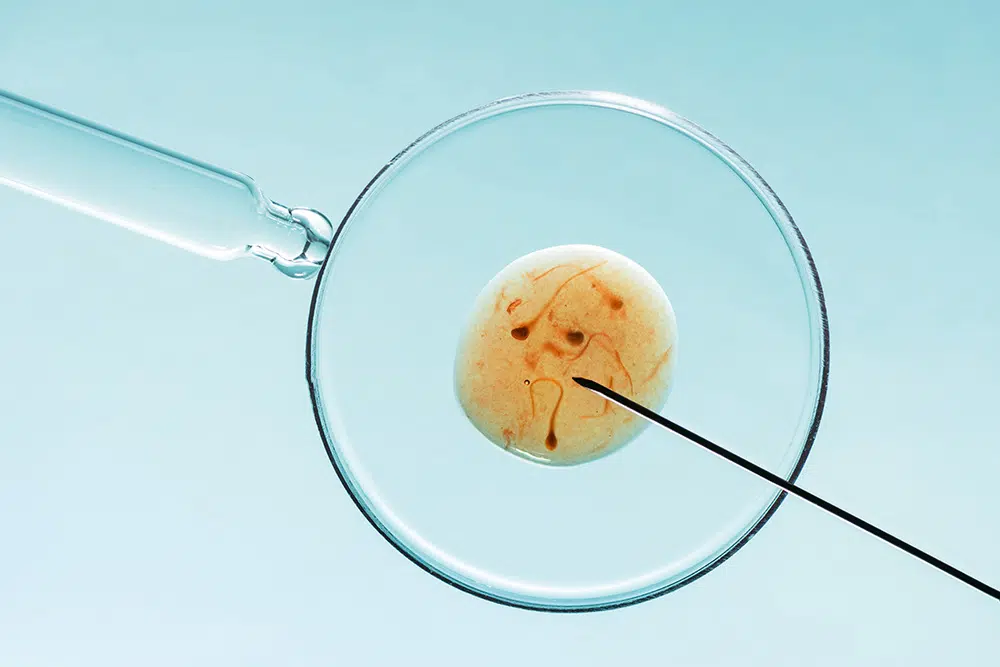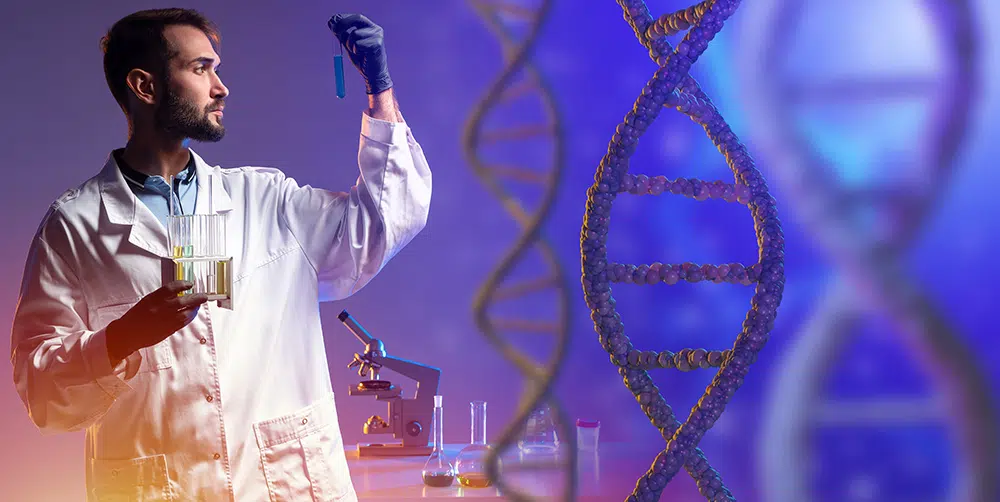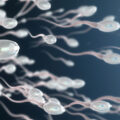Last updated on January 14, 2025
Alcohol is commonly consumed worldwide and plays a role in social and cultural settings. However, for those concerned with male fertility, understanding its impact on reproductive health is crucial. Many may wonder, ‘Does alcohol affect sperm?’ This article explores how different levels of alcohol use may influence sperm quality, sperm production and overall fertility, helping you make informed choices for your reproductive goals.
The Basics of Sperm Health
Healthy sperm are essential for conception and various factors affect semen parameters, including sperm count, sperm motility and overall structure. These factors collectively influence a man’s fertility. When any of these components are compromised, it can result in poor semen quality, making it challenging to achieve a successful pregnancy.
Male alcohol consumption can significantly impact these parameters, as studies indicate that drinking alcohol influences everything from reproductive hormones to the very integrity of the DNA in sperm.
How Alcohol Affects Sperm Quality
Sperm Count and Production
Excessive alcohol intake is linked to a lower sperm count, as alcohol has been shown to reduce testosterone levels, which are crucial for sperm production. Reduced testosterone also disrupts the delicate hormonal balance needed for healthy reproduction, which can ultimately result in sexual dysfunction.
Sperm Motility and Morphology
Beyond the number of sperm, alcohol also affects their ability to move and their shape. Sperm motility is crucial, as sperm need to swim to fertilise the egg. Even with normal sperm counts, low motility can prevent conception. Excessive alcohol consumption has been associated with abnormal sperm shapes and movement, reducing the likelihood of successful fertilisation.
Impact on DNA Integrity
Alcohol can damage DNA within sperm, affecting not just fertility but potentially leading to alcohol-related birth defects. When sperm with damaged DNA fertilises an egg, it may lead to issues in pregnancy or affect the baby’s health. While rare, this risk emphasises the importance of being mindful of alcohol exposure, especially when planning a family.

Does alcohol affect sperm? Consuming alcohol before conception has been linked to lower sperm concentration.
The Role of Drinking Patterns
Different drinking habits impact sperm health in distinct ways. Binge drinking, for example, involves consuming large amounts of alcohol in a short time, which can severely disrupt semen parameters. Even moderate alcohol consumption – defined as up to two drinks per week – may impact fertility if sustained over long periods.
Regular alcohol consumption before conception has been linked to fertility issues in men. Men who drink alcohol frequently may find it takes longer to conceive, as drinking patterns affect sperm over time.
What Science Says About Moderate Alcohol Intake
Health experts generally define moderate alcohol intake as up to two drinks per day for men. While this level is considered safe for most health parameters, it’s worth noting that consuming alcohol at any level may still influence sperm quality.
Some studies suggest that even paternal alcohol consumption within these moderate limits can slightly impact semen parameters, although the effects are often more subtle than with heavy drinking.
For men actively trying to conceive, it may be beneficial to consider reducing alcohol intake altogether or limiting it to special occasions. Cutting back on alcohol may improve not only sperm count but also the overall environment for healthy conception.

Does alcohol affect sperm? Excessive alcohol intake can lead to DNA damage within sperm cells, potentially impacting fertility.
Recovering Sperm Health After Excessive Alcohol Intake
The good news is that reducing or stopping alcohol consumption can help restore sperm production over time. Sperm cells regenerate approximately every 72 days, meaning that lifestyle changes – including cutting back on alcohol consumption – can result in improvements within a few months.
For those planning to conceive, experts suggest reducing or eliminating excessive alcohol intake at least three months beforehand to allow the body adequate time to improve sperm quality.
Conclusion
Drinking alcohol can affect sperm health in multiple ways, from reducing sperm count to impacting motility and DNA integrity. While occasional, moderate alcohol consumption may not have severe effects, the best approach for those concerned about fertility is to limit alcohol intake as much as possible.
By understanding how male alcohol consumption interacts with fertility, you can make better choices that support your reproductive goals. Consider reducing alcohol consumption or consulting with a professional to optimise your chances of conception and healthy pregnancy outcomes.
How to book a vasectomy appointment
- Fill out our online booking form
- Call us: 0800 884 408
- Email us: info@thecooperclinic.co.nz
Frequently Asked Questions
How does alcohol consumption prior to conception affect fertility?
Consuming alcohol before conception can impact fertility by reducing sperm quality. While occasional intake may have limited effects, regular drinking can lower sperm concentration compared to those who abstain, potentially affecting conception chances.
Can alcohol lead to issues beyond fertility when planning a family?
Yes, alcohol use in either partner can have broader implications. For example, maternal drinking during pregnancy is linked to fetal alcohol spectrum disorder and fetal alcohol syndrome, both of which can significantly impact a child’s development. Reducing alcohol intake is essential for both partners, especially before conception, to minimise these risks.
Does reducing alcohol intake improve sperm concentration?
Yes, studies indicate that abstaining from alcohol or significantly reducing it can lead to improvements in sperm concentration compared to regular drinkers, enhancing fertility prospects for those trying to conceive.
How long should I stop drinking alcohol before trying to conceive?
It’s generally recommended that men reduce or stop alcohol consumption before conception for at least three months. This time frame allows new sperm cells to develop, as sperm regenerates approximately every 72 days.
Are occasional drinks okay if we’re trying to conceive?
While an occasional drink is unlikely to have a severe impact, regular or excessive alcohol intake can affect sperm quality and concentration. For those actively trying to conceive, cutting back on alcohol entirely or limiting it to special occasions can help create a more optimal environment for conception.







